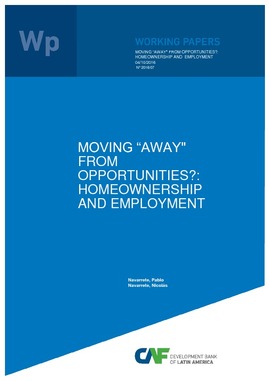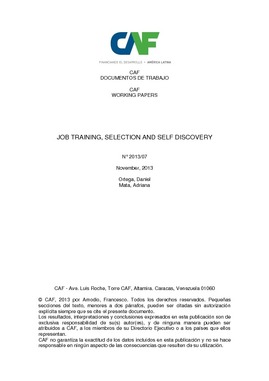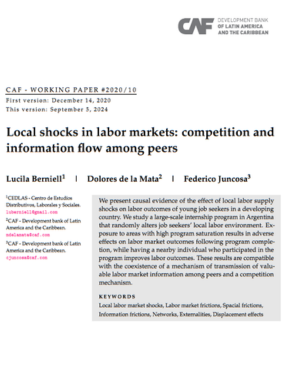Moving “away" from Opportunities?: Homeownership and Employment
Abstract
Homeownership is promoted by the majority of OECD member countries. Nevertheless, the impact that owning a house can have on employment levels is not fully understood. In this paper, we estimate the causal effect of homeownership on employment using a regression discontinuity design that exploits an arbitrary threshold arising from a voucher-based homeownership program in Chile. We establish that homeownership decreases employment by between 3.85 and 5.33 percentage points. These results contrast with previous nonexperimental literature, which has often found a positive effect of homeownership on labor market outcomes. Our findings are primarily the result of individuals not entering the labor market, rather than workers being motivated to leave their job. We also find that families receiving a house through this program are neither more nor less likely to move to another labor market, contrary to what was proposed by previous theoretical papers. A likely mechanism driving the effect is that families moving into their own house under this program tend to see an increase in their monthly unearned income and in their housework obligations, which raises the minimum wage for which they are willing to work.
Country / Region
Date
2016-07-10Cite this publication
Belongs to collection
Author
Navarrete, PabloNavarrete, Nicolás
Items Relacionados
Starting on the right track? The effects of rst job experience on short and long term labor market outcomes
For young job seekers barriers to labor market entry are high, especially in developing countries were information frictions are large. Can first job ...
Job training, selection and self discovery
We randomly assign 1250 unemployed men and women to be invited once or twice to a specific-skills training program offered by a large multinational firm ...
Local shocks in labor markets: competition and information flow among peers
We present causal evidence of the effect of local labor supply shocks on labor outcomes of young job seekers in a developing country. We study a large-scale ...





